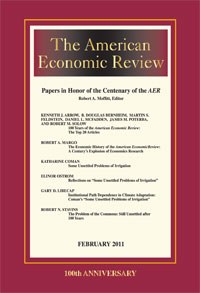
Engelmann, J., Lebreton, M., Salem-Garcia, N., Schwardmann, P. and \van der Weele\, J.J. (2024). Anticipatory Anxiety and Wishful Thinking American Economic Review, 114(4):926--960.
-
Affiliated authors
-
Publication year2024
-
JournalAmerican Economic Review
Across five experiments (N = 1,714), we test whether people engage in wishful thinking to alleviate anxiety about adverse future outcomes. Participants perform pattern recognition tasks in which some patterns may result in an electric shock or a monetary loss. Diagnostic of wishful thinking, participants are less likely to correctly identify patterns that are associated with a shock or loss. Wishful thinking is more pronounced under more ambiguous signals and only reduced by higher accuracy incentives when participants{\textquoteright} cognitive effort reduces ambiguity. Wishful thinking disappears in the domain of monetary gains, indicating that negative emotions are important drivers of the phenomenon.